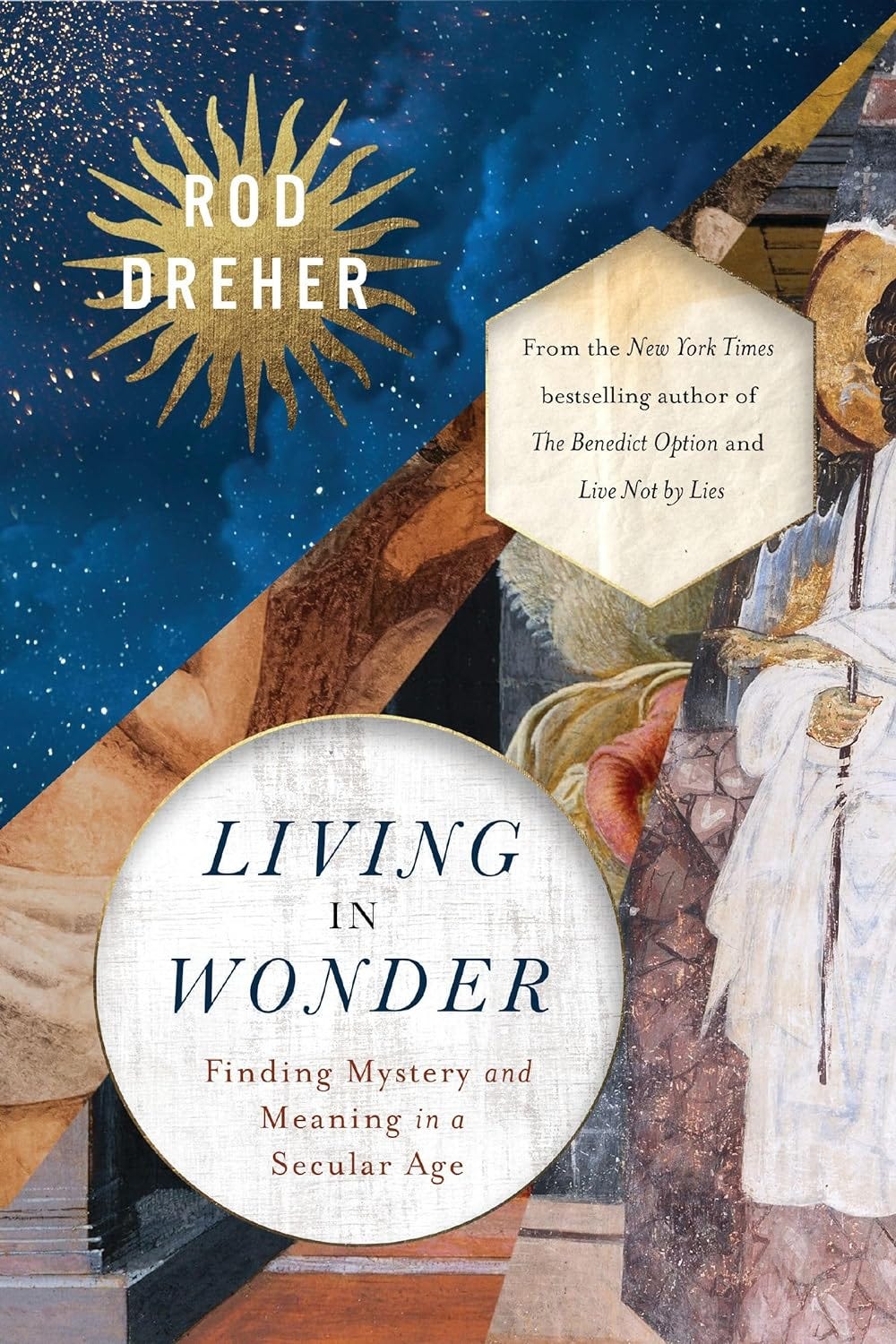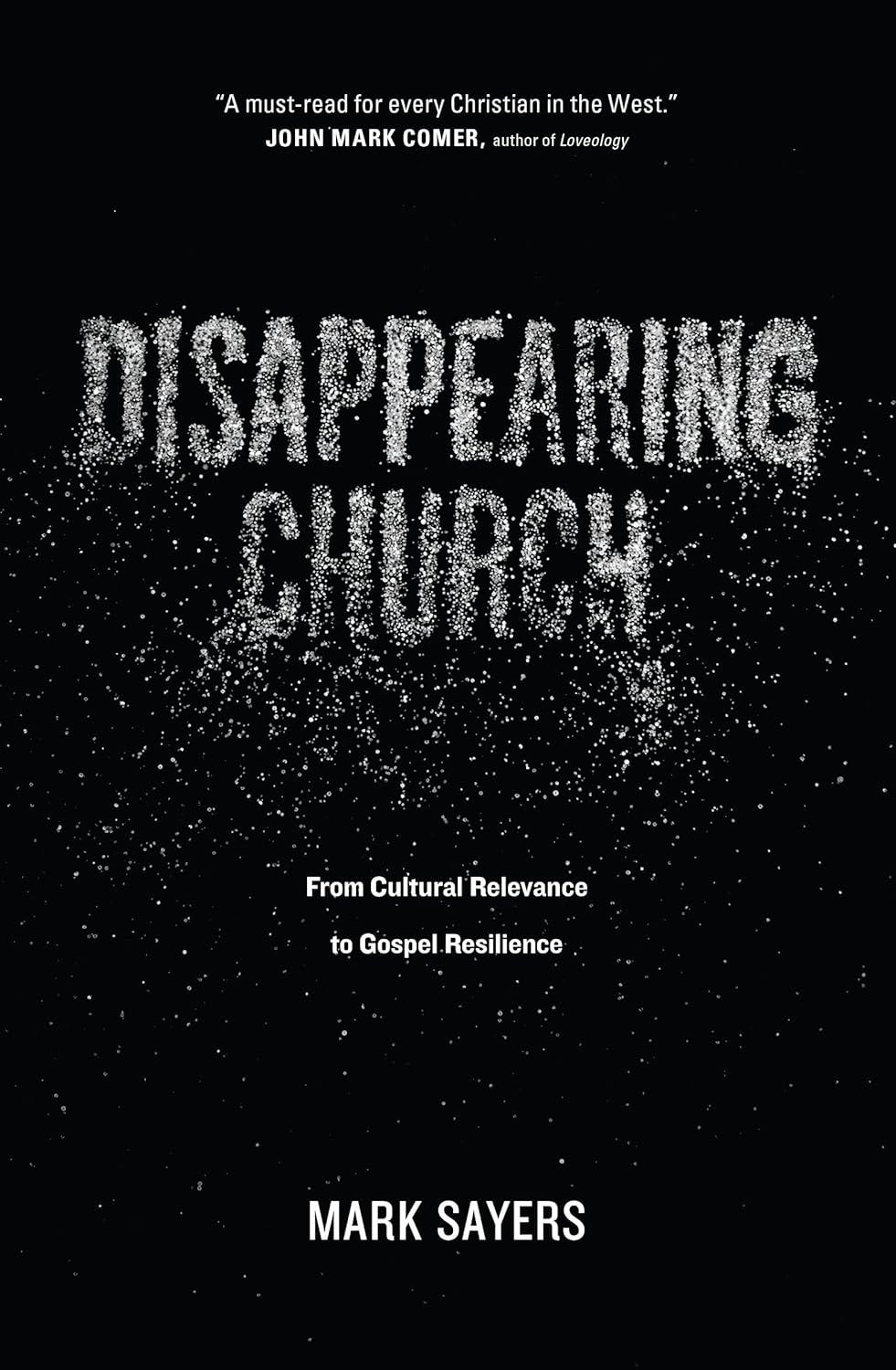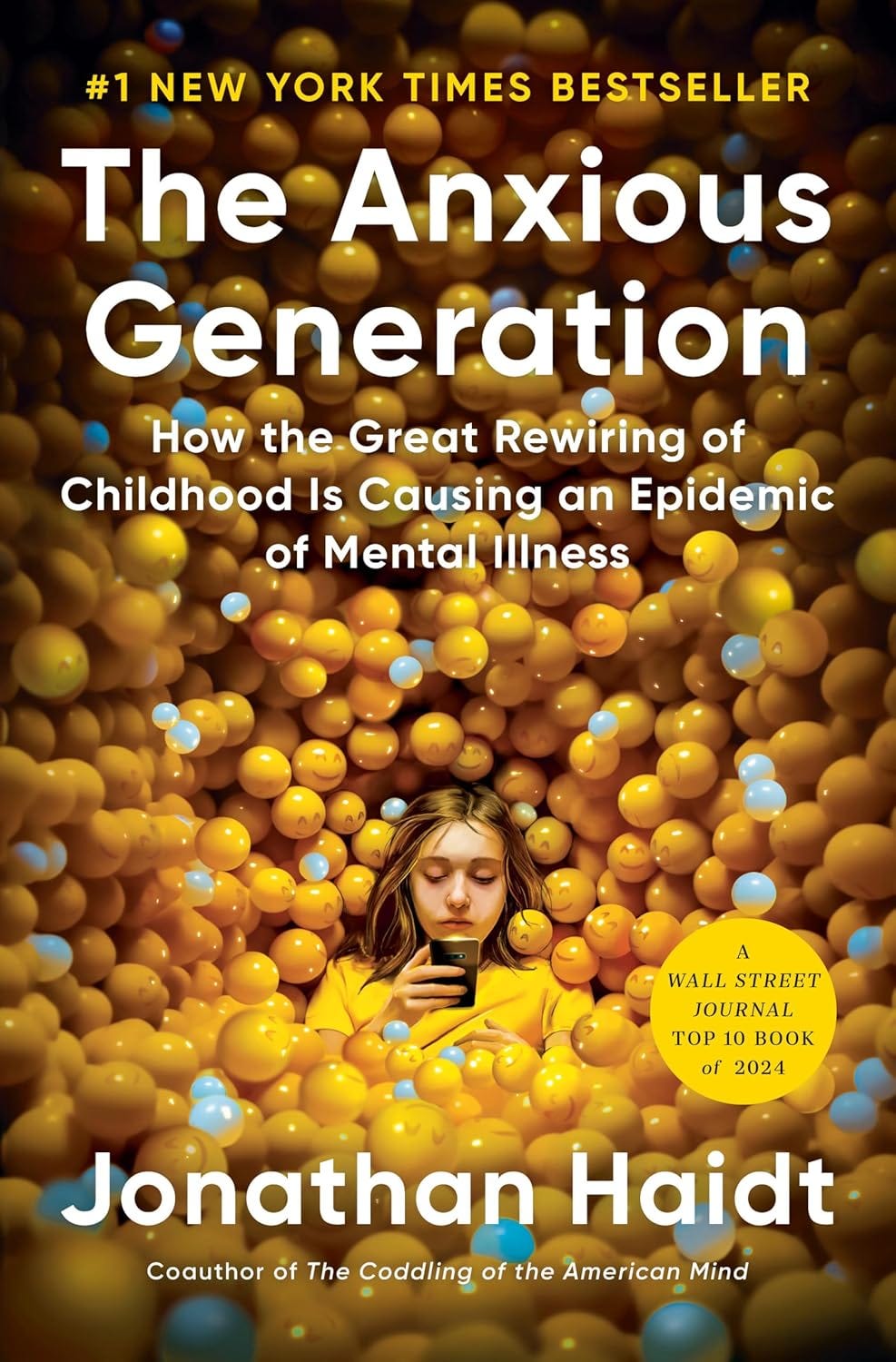Five Books Every Pastor Should Read Right Now
...to understand the culture, and to better preach the gospel within it
The culture is changing. The vibe is shifting. The gospel stays the same. And yet, as pastors, we must seek new, creative, effective ways to preach it.
I have found these five books really helpful to me as I have tried to figure out where we are culturally, and how as a pastor I might preach to this culture and live faithfully in the midst of such a culture. I highly recommend all of the following works, because they have sharpened me in how I’m thinking, preaching, teaching, and leading as a pastor.
1. Living in Wonder: Finding Mystery and Meaning in a Secular Age by Rod Dreher
Rod Dreher, conservative journalist and convert to Eastern orthodoxy, is a gifted cultural critic and Christian guide to where we currently stand in our secular world. He senses, rightly I think, that we are living through a seismic shift into a re-enchanted age, one marked by new openness to spirituality of all kinds. He sees this as a great opportunity for the church, but also one ripe with danger.
I have had more conversations with people with some experience of the occult or the demonic in the past year or two than I have in my entire life; this book is a necessary primer for every pastor who may, like me, feel somewhat inexperienced in how to encounter the dark forces of the world with the powerful name of Jesus. He covers the demonic, the miraculous, UFOs, the ways in which technology acts as a kind of dark spiritual force, and how the church has an opportunity to be a holy place and community of Christian re-enchantment.
This is how Dreher summarizes his own book: “Living In Wonder is meant to awaken Christians (and others) to the reality of the spiritual dimension, especially as it manifests to us materially — through the interpenetration of the spiritual with the material. (Above all, in the Incarnation of Christ, the eternal infinite God, as a time-bound, finite man of flesh.) But it also serves as a warning about how infernal spiritual powers can do the same thing, and are eager to do it to deceive and destroy us.”
Buckle up if you choose to pick up this book. It will challenge you, surprise you, and yet also offer a hopeful way forward. I highly recommend it.
2. The Rise and Triumph of the Modern Self: Cultural Amnesia, Expressive Individualism, and the Road to Sexual Revolution by Carl Trueman
(or his shorter version, Strange New World: How Thinkers and Activists Redefined Identity and Sparked the Sexual Revolution)
If you have ever been confused about how formerly radical sexual and gender ideologies came to be accepted as commonplace, this book is your guide. The Rise and Triumph of the Modern Self is admittedly a long work, but I think is worth reading in full. Knowing critical history well (from the Romantics to Nietzsche to the Enlightenment to Marx to Freud to Foucault to contemporary critical theorists) will equip us to not only preach clearly about subjects like marriage and sexuality and gender, but will help us show why the teaching of Christianity is more beautiful and compelling than its secular alternatives. Carl Trueman does a great job of walking you through why and how we have come to believe what we believe in the West, and what we might do now in response as orthodox Christians.
Also, the shorter version Trueman wrote, Strange New World, is there for those who don’t want to wade through the meatier (and better!) original version, or if you are looking for a book to read with church members who might be intimidated by the original’s page number (407 pages!).
3. Disappearing Church: From Cultural Relevance to Gospel Resilience, & Reappearing Church: The Hope for Renewal in the Rise of Our Post-Christian Culture by Mark Sayers
So, technically this is two books, but they are companions and both worth reading. Mark Sayers, of Australia, helpfully frames the challenges and hopes that we face as a church in the 21st century. They are extremely readable books without sacrificing any depth. Sayers is gifted at absorbing ideas that people like Carl Trueman are writing about, and showing them in simple, graspable ways.
But he also senses, rightly I think, that churches must shed our striving for relevance, and focus on becoming a resilient community committed to discipleship. He gives an unsentimental description of where we are, but also offers an extremely hopeful vision of what God might do through us. His writing on renewal in Reappearing Church is what I hope to see in our lifetime!
4. The Anxious Generation: How the Great Rewiring of Childhood Is Causing an Epidemic of Mental Illness, by Jonathan Haidt
This book, more than any I have read in recent years, has changed how I am thinking not only about parenting but also about ministry. I believe that the church has an incredible opportunity to stand in resistance against the attention economy, the way tech companies have colonized our minds and our time.
Also, if you want to reach people under the age of 25 for the gospel, you need to read this book. People in those generations (as well as the older ones too), are starved for real, embodied, genuine community. They long for a way to be freed from their devices and from social media and from the Internet, but no one is quite sure how to do it. What if we could introduce these rising generations to a life in Jesus, who calls us to him to find rest for our souls? What if the church was a group of people who were not addicted to their phones, who looked each other in the eyes, who taught parents how to find wisdom when it comes to screens and phones and tablets? Reading this book is a great way to start imagining just how we, as churches, could live this out.
5. Practicing the Way by John Mark Comer
I’ve written a review of this book in Firebrand magazine, and I continue to see its effects on the people in my church after going through the Practicing the Way course as a church. There have been some criticisms of Comer, but I think in this book he is modeling for the church a compelling and effective way to preach the gospel to our culture. People are starved for meaning, worn out from the pace of their lives, and seeking something and anything that might give them relief. How incredible to discover that Jesus offers not only the truth and the life we are seeking, but also a way in which to live in this world. In my view, there are few books that show with greater clarity why a life of apprenticeship to Jesus is the most desirable life we can imagine. Jesus not only offers us salvation, but a life that is abundant and good, a life we actually want. Comer also has challenged me personally as a pastor to have an intentional spiritual life, a rule of life, that has changed my marriage, my family life, and my life with God in ways I am incredibly thankful for.
These are the top five books I would pick at this moment for pastors to read. What would you recommend? Let me know, I’d love to hear you suggestions.
-Cambron
Supporting Wright Writes
If you are enjoying the work of this Substack and would like to support me, please consider:
Subscribing to receive future posts on Tuesdays and Fridays (it’s free to do so!)
Sharing an article on social media or with a friend (this really helps)
Buying me a coffee by the link below
Upgrading to a paid subscription










Thanks for the suggestion of books to read. I will put them on my list!
Good morning, Cambron!
Thanks for sharing these book recommendations … I have read essays and journal articles by some of these authors, but look forward looking into these. I subscribe to the journals First Things and Touchstone which offer thought-provoking reads.
A favorite thinker/writer of mine is Os Guinness, who I guess is winding down a bit (he is in his mid eighties!) … his book Impossible People was released a few years back, but I find its message remains quite timely. Highly recommend it.
Many blessings to you for your ministry … and your family life!
Rebecca Heid